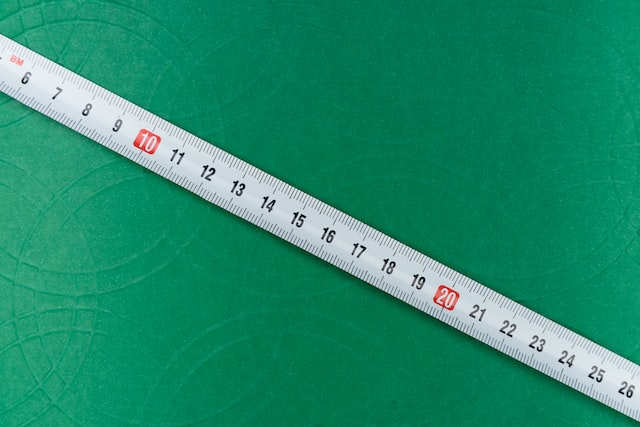The presentation of your resume is as important as what you have listed on it. I can’t tell you how often a candidate with good experience is passed over because their resume is either too long or ill properly formatted.
The hard part is to figure out how long a resume should be. Is there some magic length that you need to hit when writing a resume?
As a recruiter, when you’re looking at a resume the first thing you notice is the presentation. You’re not even looking at the job titles or the details of what each position was.
It’s a visual thing. A resume should impress people in a visual manner. And part of that involves making your resume easy to read and easy to understand.
So, back to the question at hand. How long should your resume be? Easy: 1 Page!
Sometimes there can be exceptions to this rule. But you should try and avoid any situation where you have a resume running two pages. Three pages and you’re basically done for!
Is There a “Too Long” Length To Be Aware Of?
Yes, any resume that is longer than a page is not ideal. But a resume that is longer than two pages is too long.
Unless you are an academic, which you aren’t…let’s face it….you should never have a resume that is longer than a page.
Some people who are in c-level roles are going to have multi-page resumes. But that is not the norm. It’s not common for people who aren’t operating at a c level executive role to need two pages.
The fact is that recruiters and employers do not want to deal with reading multiple pages.
And there should never be an instance where you have a list of multiple jobs. If you are an older person, you can simply leave off some of your earlier jobs. There is no reason to have all of your jobs on your resume if you have been working for decades. It can bias a potential employer against you. This is also why you shouldn’t list the year you graduated, and certainly never list your age on a resume as there is no need for that. It is one of the things you should never list on your resume
If you are a someone who jumps around and has quit jobs or been let go after a few months, then that’s a whole other problem. The length of your resume is not going to be the issue, the issue with your situation is that you have a suspect work history and every recruiter who is reviewing your resume will likely be suspicious of it.
What Kind of Resume Are You Writing: Intern, First Job, 10 years…?
The length of your resume will in part be dictated by how long you’ve been in the workforce.
If you are a new college graduate who has only a couple of internships, then your resume will be brief. You will still want to fill out the page, but there is absolutely no reason that you will want to make a two page resume.
Recruiters and hiring teams that are interviewing for entry level jobs, even jobs as common place as administrative assistants, will want a concise and easy to read resume. Anything longer than one page is going to make them pass by.
On the other hand, if you’re someone who has been in corporate work for over a decade then you might be tempted to have a two page resume.
Here’s the truth, if you have worked mid-level roles and not held executive or development roles, then you won’t have any reason to have a two page resume.
Multi-page resumes are solely necessary for people who have had director level roles, c-level positions of some kind, or have had extensive executive experience over a decade plus.
There can be a harm in having a resume run longer than a page, so I would advise that you proceed with caution and do not create a two page resume unless you really need to.
How To Keep a Resume From Being Too Long
The simplest way to keep a resume from being too long is to pare down your job duties.
There is no need to write endlessly on the tasks you had while at a company. The main thing is to highlight the most important roles, and make certain that your job title is clear and makes sense.
Also, if you are someone who has been in the workplace for decades, you can and probably should pare off the first few jobs you had.
Recruiters often do not want to deal with people who have worked for decades. There is the obvious ageism at play. Recruiters don’t care if the candidate is older, but they do know that companies tend to not want to hire older people. These people won’t hire older people because they want to pay as little as possible and not pay benefits.
The phrase that I like to tell people is to “keep it simple stupid”. There is no reason why you need to write paragraphs about your jobs. And certainly keep the resume to one page, and don’t try any tricks like making a two page resume that will be printed double sided for an in person interview. Hint…that is a big no no in the business world.
Does The One Page Rule Really Apply?
In almost all situations a resume needs to be a single page. If you are applying for a role which requires a multi-page resume, you’re in a very select group.
Academics do not use regular resumes.
For all other job types, including non-professional work, a single page resume is the best. It’s simply the standard and what you want to use.
Any sort of deviation to the normal type of resume and you’re asking for trouble.
You can either have a photo or not have a photo on your resume. But if you have a resume that is 3 pages, then you are basically asking for a recruiter to discard it. Remember, you’re not working for NASA as a engineer nor are you a Phd. Any sort of corporate or non-professional governmental job should have a brief resume.
The ideal resume length is a single paged. Keep the resume brief, but make sure to include all pertinent details. Dates and Titles are especially important.
If you want to include a photo on your resume, you can do so, but it is important to make sure that you use a professionally taken photo. Do not use a selfie.
Avoid single spaced resumes where there is no room for the recruiter to review of look at your resume in peace.
The reason that a single page resume is the perfect length is that it’s going to handle all points needed. The recruiter will quickly and clearly be able to handle all problems they are faced with as a recruiter. The job of a recruiter is difficult, so making it easier for them will make it more likely that they will reach out and contact you for work.
This blog post has some tips on how to keep a resume one page.

Jennifer Miller- Recruiter and career advisor. Here to share wisdom to help you learn how to work with recrutiers. If you’ve got any questions, feel free to send me a question and I’ll do my best to answer it!
You can also check out some of my writing at Medium here.

